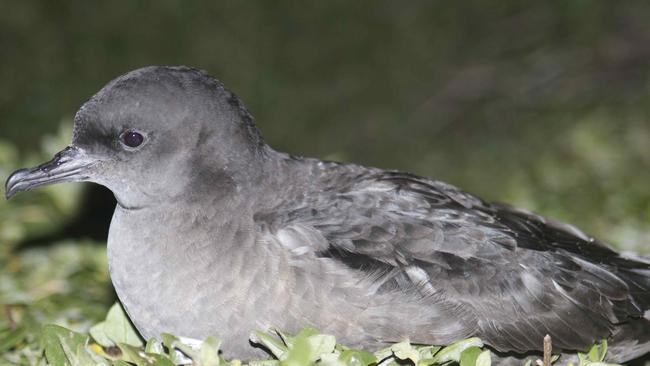Tough old mutton birds defy ecological disaster
What was feared an environmental disaster appears to have become a tale of resilience, against all odds, by an extraordinary bird.

What was feared to be an environmental disaster appears to have become a tale of remarkable resilience, against all odds, by a truly extraordinary bird.
Late last year there was global concern for mutton birds after the normally faultless timekeepers arrived two to four weeks late for their usual September 21-22 touchdown at their southern Australian breeding grounds.
Tens of thousands of the birds — which migrate from Alaska, Japan and Siberia to breed — didn’t make it, washing up dead on beaches from Alaska to NSW. It was feared survivors of the long-lived and normally abundant bird might lack the time and strength to breed this season.
However, it now appears the burrowing species, also known as the short-tailed shearwater, is a tough old bird, indeed.
Eric Woehler, of BirdLife Tasmania, said recent burrow surveys in Tasmania and Phillip Island, Victoria, suggested something close to usual numbers breeding. “All the indicators are that the birds have recovered — the late arrival doesn’t seem to have an impact on the breeding season this year,” he said.
That’s no mean feat given that after arriving weeks late, they had to find and prepare a burrow and fly off again, south of Tasmania, to feed and rebuild energy for breeding and egg-incubation.
“For 50 years, our understanding of these birds has been that they are highly synchronised and arrive within a day, plus or minus, lay their eggs on such and such a date, and so on,” Dr Woehler said. “This shows that these birds have a far higher degree of plasticity or flexibility in their breeding behaviour than we were aware of. The overall pattern was that the birds were able to recover, despite the late arrival, and join in the breeding.
“In many ways, we could take it as a welcome signal that the birds have potentially got the capacity to deal with a changing world as the oceans and everything else change into the future.”
That’s just as well, as Dr Woehler suspects the cause of this season’s upset was the same as a similar 2014 event: the “North Pacific blob”. This anomalous, large mass of warm water in the North Pacific Ocean forces the birds’ key food — krill — to move into deeper water, often too deep for the birds to dive.
The short-tailed shearwaters’ resilience should mean the April harvest of the birds for their meat, undertaken by Tasmania’s Aboriginal community on Bass Strait islands, can go ahead.



